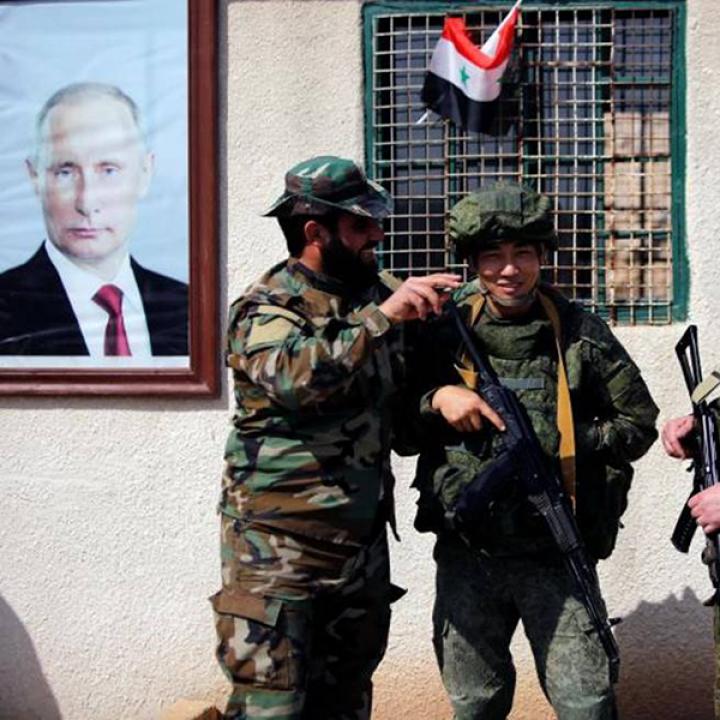
- Policy Analysis
- Articles & Op-Eds
Russia in the Middle East: Is There an Endgame?

The Kremlin often becomes more aggressive abroad to help shore up its legitimacy at home, so it may be more than happy to maintain a permanent state of low-level, managed conflict in the region.
The following is an excerpt from Russia’s Policy in Syria and the Middle East: Determination, Delight, and Disappointment, a multiauthor compilation released by the Central Asia Program at George Washington University. To read the full article, download the PDF.
Prior to the Syria intervention that began in September 2015, President Vladimir Putin had labored for at least fifteen years to bring Russia back to the Middle East. Yet the intervention officially restored Moscow to its position as a critical player in the Middle East and made Putin a regional powerbroker.
Few in the West expected Russia, with its declining economy and pre-existing involvement in a war in Ukraine, to intrude militarily in Syria and save Syrian dictator Bashar al-Assad from an imminent fall. The intervention itself also differed from typical Kremlin behavior. A limited military engagement closely tied to coercive diplomacy and work with regional partners, it has been an air campaign with a naval component, rather than a traditional battle waged by ground forces. It has therefore raised myriad questions for Western analysts and policymakers, perhaps the most persistent one of which is: what is Russia’s endgame in the Middle East? From the Kremlin’s perspective, however, the game is ongoing; it has no defined end...
Central Asia Program




